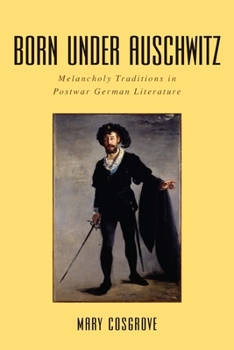Born Under Auschwitz: Melancholy Traditions in Postwar German Literature
(Part of the Studies in German Literature Linguistics and Culture Series)
Uncovers the literary traditions of melancholy that inform major works of postwar and contemporary German literature dealing with the Holocaust and the Nazi period. In German Studies the literary phenomenon of melancholy, which has a longstanding and diverse history in European letters, has typically been associated with the Early Modern and Baroque periods, Romanticism, and the crisis of modernity. This association, alongside the dominant psychoanalytical view of melancholy in German memory discourses since the 1960s, has led to its neglect as an important literary mode in postwar German literature, a situation the present book seeks to redress by identifying and analyzing epochal postwar works that use melancholy traditions to comment on German history in the aftermath of the Holocaust. It focuses on five writers - G nter Grass, Wolfgang Hildesheimer, Peter Weiss, W. G. Sebald, and Iris Hanika - who reflect on the legacy of Auschwitz as intellectuals trying to negotiate a relationship to the past based on the stigma of belonging to a perpetrator collective (Grass, Sebald, Hanika) or, broadly speaking, to the victim collective (Weiss, Hildesheimer), in order to develop a melancholy ethics of memory for the Holocaust and the Nazi past. It will appeal to scholars and students of German Studies, Comparative Literature, Cultural Studies, Cultural Memory, and Holocaust Studies. Mary Cosgrove is Reader in German at the University of Edinburgh.
Format:Hardcover
Language:English
ISBN:1571135561
ISBN13:9781571135568
Release Date:April 2014
Publisher:Camden House (NY)
Length:244 Pages
Weight:1.10 lbs.
Dimensions:0.9" x 9.2" x 6.2"
Customer Reviews
0 rating





